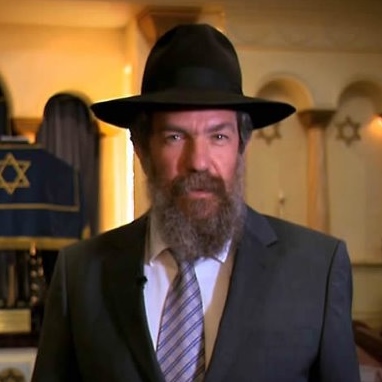
Religion

Pesach at home or shul?
RABBI DOVID HAZDAN
One would imagine that the annual celebration of the birth of a nation would entail a gathering in the public domain. It would seem that the shul service would be the most appropriate avenue to rally the masses to express pride and gratitude for the national achievement. Surely, the guarantee of preserving and perpetuating the structure of nationhood is through the broadest participation of the community.
Yet, the celebration of Pesach – the emancipation and birth of our people – takes place in the home. The Seder night facilitates interaction between parents and children. We celebrate and perpetuate the emergence of our people, Israel, sitting around our dining-room tables. Even the Pascal lamb – sacrificed on the fateful day of the birth of our nation – was brought and eaten within the context of families. Its sign was not placed on the doors of the shul or communal institution, but on the door posts of the Jewish home.
By stark contrast, the Yizkor service on the last day of Pesach, which deals with a family’s personal pain of loss, does not take place in the private embrace of one’s loved ones at home, but in the public domain of the synagogue.
Why is nationhood commemorated at home with the family? Why is family loss and trauma addressed publicly through the formality of the shul service?
Perhaps the answer lies in the fact that the preservation of our people, our traditions, our heritage, and our core values is best achieved by wholesome families and inside the haven of healthy homes. We communicate and teach our principles to our children by the example we set at home. The eternal chain of Jewish continuity takes place when a child is surrounded by the taste, feel, and smell of a Pesach Seder and the scrupulous attention to the details. The perpetuation of the morals and beliefs of our people is guaranteed when our children experience the undivided attention of their parents, who encourage questions and dialogue and share precious time together involved in meaningful conversation.
National monuments do not preserve nations. Public parades do not ensure continued pride and joy. Mass gatherings do not link the succession of generations. It is our homes, more than our schools or our shuls, that are the key generators of values and ideas, and the incubators of fresh hope for tomorrow.
Pesach emphasises the extraordinary role that our home and family life play in moulding the priorities of our children and grandchildren. As parents, do we listen with our eyes? Do we speak through our actions? Do we set the example by walking the talk and living with optimism, faith, and hope?
Do our conversations treasure freedom – our own and that of others? Does our family life pulsate with an attitude of gratitude for life itself, and for the gift of being able to choose to live as proud and confident Jews? No school or shul experience can impact as largely on our children as the serenity, peace and harmony of a family living the ideals and tenets of our faith.
Our personal Pesach is more than a journey recalling historical events in ancient Egypt. It implores us to achieve and celebrate current, newfound freedom. It inspires the quest to unshackle ourselves from the confines of habit and the stunted and limited aspirations of yesterday.
Each day is a new opportunity to grow, to reach beyond our grasp and aspire to achieve successes that supersede the dreams of yesteryear. The oppression of Pharaoh is closer to home than the dictates of an ancient despot.
It is found in the suppressive debilitation of peer pressure, conformity, lifestyle dependency and substance abuse, loss of confidence, apathy, and despondency. There is no more dependable, effective means to escape these ills than by experiencing the acceptance, warmth, motivation and inspiration of a happy, integrated family.
Our nationhood is nurtured and guaranteed by the strong structures and loving ties of family.
On the last day of Pesach, notwithstanding our heightened awareness of the power and indelible influence of family, we specifically leave our homes and go to shul to deal with loss in a public, communal Yizkor service.
To preserve the memory of a loved one, it is not enough to have shared nostalgia within the embrace of family. Building a memory requires an insight and vision that extend beyond the warmth of our homes. Souls descend into this world to impact on society, to address the needs of a stranger, and to make this world a holier and kinder place.
When we stand amid the congregation and pledge generously to charity – as we do in the Yizkor service – and we plough our grief into addressing the needs of others, we consequently bring merit and strength to the journey of departed souls.
At the same time, we best assuage our own pain and fill the vacuum of our loss when we address the pain of others. We cannot find personal healing when we are self-absorbed. The Yizkor service at shul challenges us to stretch beyond our comfort zones, join the structures of community, and participate in addressing its needs.
This Pesach 5779, let us celebrate and perpetuate our nationhood and emancipation by strengthening our Jewish home.
Let us utilise the bonds of family and the moving moments of memory to commit ourselves to community, shul participation, and the building of a better world.
Let us harness the complementary powers of home and shul.
- Rabbi Dovid Hazdan is the dean of Torah Academy and rabbi at Great Park Synagogue.




